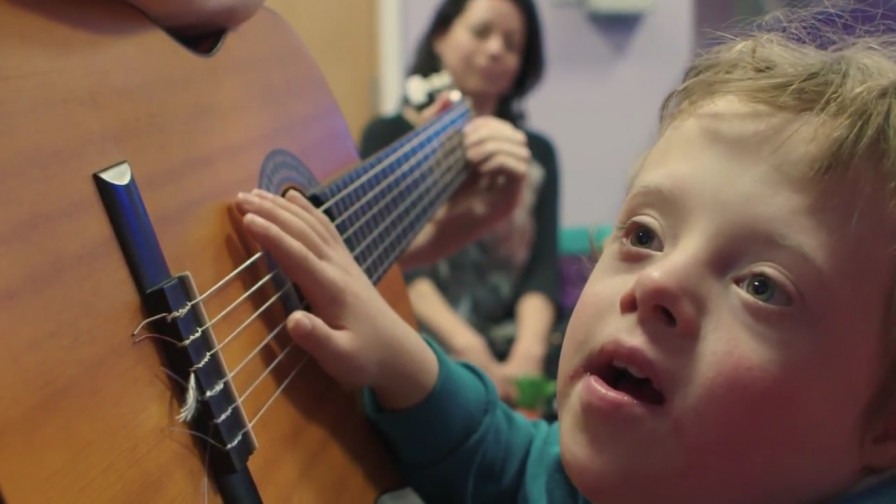Beyond Words: Music gives voice to those who have difficulty communicating with words

The Beyond Words project was one of only eight projects in Round 1 funded nationally in 2015 by an Arts Council England Research Grant. The two-year ethnographic study explored how engaging with music helps people who have difficulty communicating with words (for example, people living with dementia, autism, learning disabilities, stroke, elective mutism, etc.). The project also observed how music leaders used the 'unspoken' in their practice.
For the past 18months I've worked alongside Claudia Blandon and Professor Jocey Quinn from the Institute of Education, Plymouth University on this research project in my role as Training and Research Manager at Plymouth Music Zone.
Many arts / music professionals will find resonances within the findings of this research. So many of our experiences with music are richly threaded with different ways of communicating without words. The deep connections that form between people when making music are difficult to define, and yet we recognise all the time that they are happening. Sometimes we articulate this, and other times it's just too complex to unpick, especially when we try to find the 'right words' to describe what happened.
So what was different about this research project?
At Plymouth Music Zone, we work with an extremely broad range of people, where it was possible to set up opportunities to research the questions across different ages, abilities and backgrounds. We were interested in common threads and the 'spaces' in between people and their interactions. How could we articulate what was happening and why? What impact did it have on individuals, but also their families and people close to them - their 'networks of intimacy'?
A lot of what the findings tell us would not be a surprise to many people. There's something about music leading that creates a 'normalising' of very special and unique experiences. As much as anything else, it's been a really useful reminder to ourselves as practitioners that this is the case and that not everyone in the world can recognise these things in the same way. An acknowledgement of the musical, social and emotional interweaving as a complex and intensive way of working, at the same time as developing and using musical skills and professional judgments is not an easy task, particularly in the long-term, but absolutely worthwhile.
Post-humanism? What on earth does that mean?
Post-humanism is a theoretical framework initially explored in critical and cultural theory. Existing approaches to the non-verbal in inclusive music practice seem to be inadequate, based on deficit models which see silence as a problem to be overcome and the non-verbal person as someone who has not attained those elements that are considered essential to being a high-functioning human, namely articulacy and agency. Rather than focusing on the inviolate individual who possesses a ‘self’ that s/he can communicate through words, post-human theory moves away from the articulate human to focus on acts and bodies, on materiality and the agency of things. It validates and explores the significance of silence and focuses closely on space and the visual in its methodology.
We felt that this lens was extremely useful when studying those 'spaces in between' and this was another reason this has been a very unique study - opening up the dialogue and understanding of what it means to be human.
Please use the following link to download the full report:
https://issuu.com/plymouthmusiczone/docs/beyond_words-_final_report-12-6-201
Here's the link to the Plymouth University's media release on their website:
The PDF of the report is attached, but please note this is not compatible with Safari / Mac users, so please use the ISSUU link above instead.
Any reflections about your own experiences and what you think about the findings would be gratefully received.
